 The Poisonwood Bible by Barbara Kingsolver
The Poisonwood Bible by Barbara Kingsolver
My rating: 4 of 5 stars
I would never have read this book without the nudging of my local library. The Poisonwood Bible hit my radar via the suggested reading list for the adult winter reading program, Destination: Anywhere, sponsored by the Kansas City Public Library. I don’t normally read this flavor of historical fiction, but once I got into the heads of all five women, I stayed the course and finished the book. Not quite in time for the book discussion held by the Trailblazers book club, but far enough along that I could fully participate in the discussion.
Synopsis from KC Library:
When a white preacher from Georgia uproots his family and replants them amid a jungle in the Belgian Congo, the scene is set for a life-threatening culture clash. Kingsolver tells this story from the revolving point-of-view of the wife and daughters of Nathan Price as they observe his repeated frustrations, such as local aversion to baptisms in the nearby river. The Price women watch with growing alarm as the consequences of political instability – involving the CIA – creep ever-closer. But politics never subsume this survival story that describes the toll of danger and decay, while exalting the healing that Africa promises.
Notes from book club discussion:
Most of the readers loved the book (I liked it, but didn’t absolutely love it). The discussion leader remarked it took nearly fifty pages before she really got into it. Many of us agreed it was a long book to attempt in a month (although I read nearly all 400+ pages in two days since the ebook only became available for checkout on the Thursday before the Saturday discussion).
Our leader also remarked she came from a Fundamentalist background and she had met many men similar to the Father portrayed by the four Price girls. Another reader felt the entire book encompassed guilt, especially the older twin, Leah. I remarked that of the four daughters and the mother, the character I identified with most was Adah.
We discussed the political situation in Africa and the Belgian Congo in particular in the late 1950s and early 1960s. We talked about the return of the mother to Africa searching for Ruth Ann’s grave and Adah’s question to her mother about why she saved her later at the river (but not on the night of the ant invasion).
The discussion leader posed the question ‘Is this a woman’s book?’ to which we generally agreed. Written by a woman and featuring the thoughts and recollections of five women, how could it be anything else?
A reader commented how she always tries to find the connection between the title of a book and it’s contents. She struggled somewhat with it, but the discussion leader remarked that things in Africa will bite you and poison you, just like the poisonwood tree did to the Father, even after he was warned by the locals to steer very clear of it. Another reader likened the Bible of the Father to his dissemination of poison to his family and Congonese congregation through his blind faith and intolerant uncompromising adherence to a strict literal interpretation of the Bible. We discussed the differences we see now in modern missions to third world countries, which practice more respect for local customs and preach through service, not shouted espousals and condemnations.
We continued our discussion, moving on to the theme of the novel, proposed by our leader as being only a person born in Africa can truly understand it. We talked about the grandchildren’s visit to Atlanta and their wonder and amazement by the grocery store, filled with many things no one needs. Compared to the subsistence near-starvation standard of living back ‘home’ in Africa, the grandchildren could not fathom the overabundance sprawling across the store shelves.
We wrapped up the discussion with the leader asking us if we had difficulty following the shifting timelines and points of view. I commented that I had no trouble keeping track, but also mentioned that I routinely read epic fantasy which excels at sprawl, large casts of characters, myriad subplots and unexpected shifts in place and time.
My Final Thoughts:
Before I read the last few pages of The Poisonwood Bible, I had decided I would only alot three stars to my rating. At that point, I liked the book, but I didn’t love it. However, with the return of a long silent voice whispering grace and peace to her mother, I resolved to increase the rating to four stars. Officially, I’d still give it a 3.5, but I’m rounding up for the tears I shed on the last paragraph of the last page of The Poisonwood Bible.
Quotes/Highlights Marked While Reading eBook:
*** Warning: Spoilers Below ***
‘I could never work out whether we were to view religion as a life-insurance policy or a life sentence.’ Orleanna, Book Two, p. 79
‘Oh, and the camel. Was it a camel that could pass through the eye of a needle more easily than a rich man? Or a coarse piece of yarn? The Hebrew words are the same, but which one did they mean? If it’s a camel, the rich man might as well not even try. But if it’s the yarn, he might well succeed with a lot of effort, you see?’ Rachel quoting Brother Fowles, Book Three, p. 189
‘God doesn’t need to punish us. He just grants us a long enough life to punish ourselves.’ Leah, Book Four, p. 244
‘I’m sure Father resented his own daughter being such a distraction. It’s just lucky for Father he never had any sons. he might have been forced to respect them.’ Rachel on Leah joining the hunting party, Book Four, p. 252
‘In organic chemistry, invertebrate zoology, and the inspired symmetry of Mendelian genetics, I have found a religion that serves. I recite the Periodic Table of Elements like a prayer. I take my examinations as Holy Communion, and the pass of the first semester was a sacrament. My mind is crowded with a forest of facts. Between the trees lie wide-open plains of despair. I skirt around them. I stick to the woods.’ Adah, Book Five, p. 303
‘I learned the balance of power in one long Congolese night, when the drive ants came: Out into the moonlight where the ground boild and there stood Mother like a tree rooted motionless in the middle of a storm. Mother staring at me, holding Ruth May in her arms, weighing the two of us against one another. The sweet intact child with golden ringlets and perfectly paired strong legs, or the dark mute adolescent dragging a stubborn half-body. Which? After hesitating only a second, she choose to save perfection and leave the damaged. Everyone must choose.’ Adah, Book Five, p. 306
‘It’s the only time I get homesick, when America lands on my doorstep in a missionary guise. … They’re so unlike Father. As I bear the emptiness of life without God, it’s a comfort to know these soft-spoken men who organize hospitals under thatched roofs, or stoop alongside village mamas to plant soybeans, or rig up electrical generators for a school. They’ve risked … every imaginable parasite in the backwater places where children were left to die or endure when the Underdowns and their ilk fled the country. As Brother Fowles told us long ago: there are Christians, and there are Christians.’ Leah, Book Five, p. 324
‘What I carried out of Congo on my crooked little back is a ferocious uncertainty about the worth of a life. And now I am becoming a doctor. How very sensible of me.’ Adah, Book Five, p. 331
‘I called her. It was the dead-flat middle of the night. The night before Christmas and all through the house I am Adah who expects no gifts, Adah who does not need or care what others say. Yet I woke up my mother and finally asked her why she choose me, that day at the Kwenge River. Mother hesitated, understanding that there were many wrong answers. I did not want to hear that the others could take care of themselves, nor that she felt she had no other choice. Finally she said, “After Ruth May you were my youngest, Adah. When push comes to shove, a mother takes care of her children from the bottom up.” … I find this remarkably comforting. I have decided to live with it.’ Adah, Book Five, p. 331-2
‘Adah got a very strange look and said, “He got The Verse. … the last one. Old Testament. Second Maccabees 13:4 … I must have gotten that one fifty times. It’s the final ‘The Verse’ in the Old Testament … One-hundred-count from the end. If you include the Apocrypha, which of course he always did. … the Closing statement of the Old Testament: ‘So this will be the end.'” Rachel quoting Adah as they discuss their Father’s demise in a blaze of glory, Book Five, p. 370
‘There is not justice in this world. Father, forgive me wherever you are, but this world has brought one vile abomination after another down on the heads of the gentle, and I’ll not live to see the meek inherit anything. What there is in this world, I think, is a tendency for human errors to level themselves like water throughout their sphere of influence. … There’s the possibility of balance. Unbearable burdens that the world somehow does bear with a certain grace.’ Leah, Book Six, p. 395
‘When Albert Schweizter walked into the jungle, bless his heart, he carried antibacterials and a potent, altogether new conviction that no one should die young. He meant to save every child, thinking Africa would then learn how to have fewer children. But when families have spent a million years making nine in the hope of saving one, they cannot stop making nine. Culture is a slingshot moved by the force of its past. when the strap lets go, what flies forward will not be family planning, it will be the small, hard head of a child. Over-population has deforested three-quarters of Africa, yielding drought, famine, and the probable extinction of all animals most beloved by children and zoos. … No other continent has endured such an unspeakably bizarre combination of foreign thievery and foreign goodwill.’ Adah, Book Six, p. 400
‘Mother, you can still hold on but forgive, forgive and give for long as long as we both shall live I forgive you, Mother. You are afraid you might forget, but you never will. You will forgive and remember. Think of the vine that curls from the small square plot that was once my heart. That is the only marker you need. Move on. Walk forward into the light.’ Ruth May, Book Seven, p. 412
View all my reviews
 The Book Thief by Markus Zusak
The Book Thief by Markus Zusak

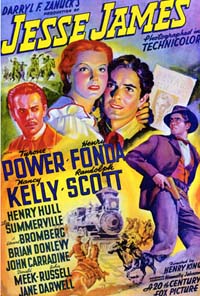
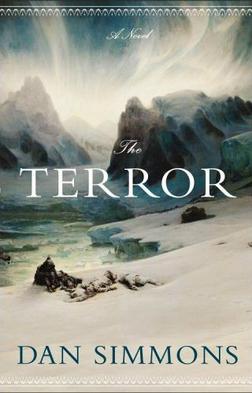
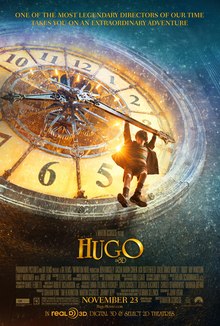
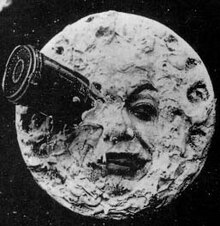

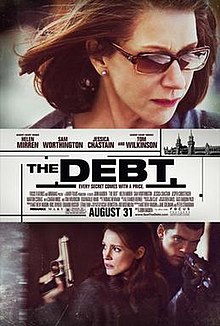
 The Poisonwood Bible
The Poisonwood Bible